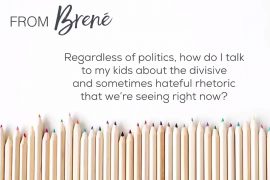By Mel White
Have you ever asked your teen a simple question and been met with a one-word answer, an eye roll, or just silence? Do you ever feel like no matter what you say, it lands the wrong way? You’re not alone.
On Friday night, I ran a seminar called “Translating Your Teen”, all about making sense of what’s really going on when teens communicate (or don’t!). My goal was to help parents decode their teen’s words, actions, and moods so they can actually connect – without the constant pushback or shutting down. The results? Parents were diligently taking notes, nodding their heads and having BIG ah-ha moments throughout the 45-minute session. Sometimes, it takes a complete stranger to help you have those moments of realisation that can change your entire approach to communicating with your teenager.
Why Do Teens Seem So Hard to Read?
Teen brains work differently. Their emotional brain is in charge, and the logical part of their brain (the prefrontal cortex) isn’t fully developed until around 25. That means their responses are driven by emotions first, logic second. So when your teen gives you a vague answer, disappears into their room, or tells you “You never listen”, it’s not necessarily about you – it’s about them trying to process their own stuff.
What They Say vs. What They Mean
Here’s a little cheat sheet we covered in the seminar – because let’s be real, teens rarely say what they actually mean.
- “I’m fine.” → “I don’t know how to explain what’s wrong.”
- “Whatever.” → “I feel powerless, so I’m shutting down.”
- “You never listen!” → “I don’t feel heard right now.”
- Silence + Slam door → “I need space, but I still want connection-please check in later.”
Once we start recognising these patterns, we can change how we respond. Instead of getting frustrated or pushing for answers, we can pause and meet them where they’re at.

The Big One: “I Don’t Know”
This phrase deserves its own section because it comes up all the time. It’s frustrating for parents because it feels like a conversation killer, but for teens, it can mean so many things. First, I want you to close your eyes and imagine the many different tones, inflections and ways that you have heard this phrase. Each one is unique and has its own underlying meaning – below are the main ones.
- “I don’t know” = “I don’t have the words right now”. Sometimes, they truly can’t articulate what they’re feeling. They might need space to process before they can share.
- “I don’t know” = “I’m overwhelmed”. There might be too many thoughts running through their head, and they just shut down to avoid dealing with it.
- “I don’t know” = “I’m afraid of your reaction”. If past experiences have shown them that sharing leads to judgement, criticism or anger, they’ll default to this phrase as a protective mechanism.
- “I don’t know” = “I don’t want to talk about it right now”. Some topics are raw, and they need time before they feel ready to open up.
- “I don’t know” = “I am distracted and not focusing on what you are saying right now, the information you are telling me is not going to land and we should try this later when I can focus properly on your message”.
So, what do you do? The key is to never push, always pull. Instead of demanding an answer, try responses like:
- “That’s okay, take your time. I’m here when you figure it out”.
- “Is it hard to put into words right now? Want to talk it through or write it down?”.
- “No pressure, but if you ever want to chat about it, I’m all ears”.
By keeping the door open without forcing them through it, you create a safe space for them to share when they’re ready.











